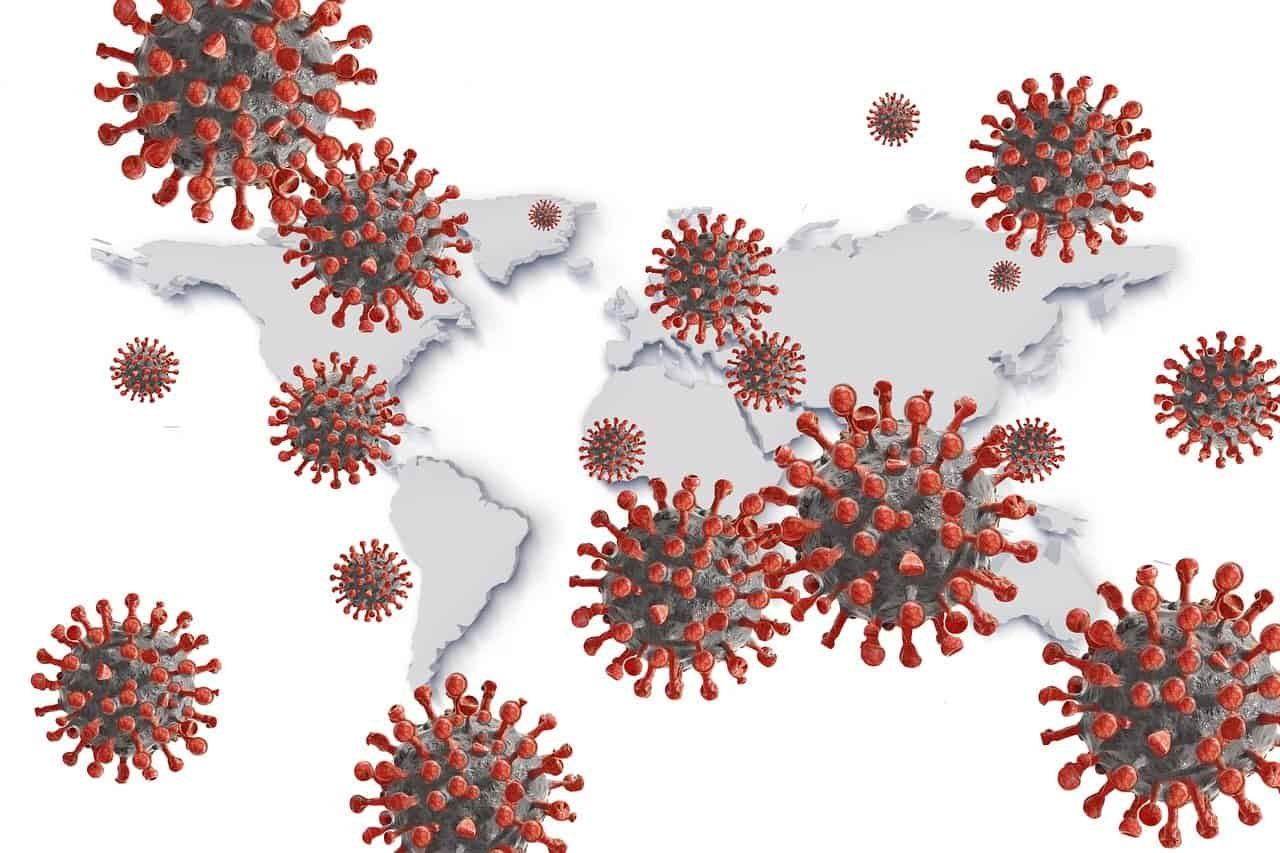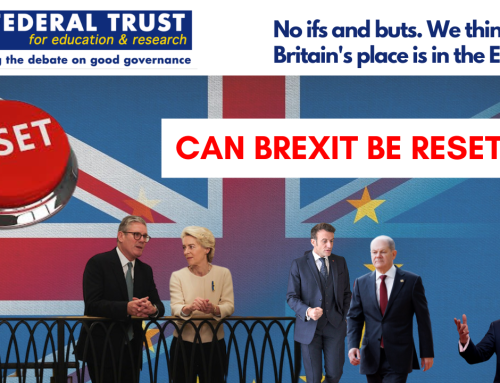
by Roger Casale
Secretary General & CEO, New Europeans
15th April 2020
Reproduced with kind permission:
Can Europe survive the coronavirus? Roger Casale
OW Magazine, 15 April 2020 (Library of Congress: ISSN 2576- 2087)
There is an old joke about a census in the USSR. A man was asked where he was born: St Petersburg. Where he went to school: Petrograd. Where he lived now: Leningrad. Where he would like to live: St Petersburg.
After the corona virus, many may wish they could return to the familiar world they inhabited before the epidemic. But as the crisis deepens, that begins to look more like a dream than an aspiration.
For the man in the story, Leningrad did eventually go back to being called St Petersburg. But Europe will never be the same again after the corona crisis.
Although the pandemic is a global experience, responses to the crisis will be regional and local.
That is because the choices governments make to protect their populations and mitigate the impact on their economies will be framed not just by the accident of geography but also by the legacy of the past.
Wartime analogies resonate in the call by the Spanish Prime Minister, Pedro Sanchez, for a new Marshall Plan. Giuseppe Conte, the Italian PM told fellow leaders that “we are at a critical point in European history.”
The call for a massive programme of public investments has been taken up by the President of Mexico, Andrés Manuel Lopez Obrador, who said “Marshall Plan is needed to help countries in development.”
In other parts of the globe, there is less of a drive towards grand strategy or design. Asian economies were more adept at dealing with the pandemic and seem better placed to emerge from the crisis economically.
By contrast, over 60% of small businesses in the USA are running out of cash. 16 million Americans have already lost their jobs. Six weeks into the crisis and the words ‘America First’ have a hollow ring to them.
States can close their doors to goods and services, to capital and people from other parts of the world, but they cannot shut the door on the corona virus.
The initial reaction of most states has been to try to contain and slow down the spread of the virus.
Containment was also the watchword of Western security policy after World War II as the Allies sought to curtail the expansionist aims of the Soviet Union.
Western Europe’s reconstruction was driven by the need to provide a bulwark against communism. But that also meant entrenching democratic values and bringing stability and prosperity to the lives of Europeans.
The architects of the post war settlement had learned the lessons of history. Catastrophic blunders after WWI led not to a resolution of “the German question” but instead to the rise of Hitler and the Holocaust.
By the time Kennedy stood (briefly) at the gateway of what seemed like a new era, he was able to tell the waiting world that as far as the future was concerned “we have nothing to fear but fear but fear itself”.
Today the “enemy” is not a foreign state but a virus. And a virus cannot be “contained” in the longer term any more than we can contain an ideology or prevent the spread of a scientific discovery or new idea.
Trump has tried the racist trope by labelling corona “the Chinese virus”. But the reality is that with a virus, it is much harder to frame our response in terms of the narrative of “them and us”. There is no “them” on this occasion, there is only “us”. That is a new challenge and not one that every leader has yet grasped.
Despite the growth of conspiracy theories that say otherwise, it is highly implausible that the corona outbreak was started by a government agency.
Governments didn’t cause the virus, but they will be held to account for the way they respond.
In her first public address following the corona outbreak, Angela Merkel spoke of the dignity of each human being, the value of every human life. Her government’s response has so far been exemplary.
In contrast, Boris Johnson’s cavalier attitude meant that he told the public “to get ready to lose some of their loved ones”. What people wanted to hear was that he would do everything possible to save their lives.
Despite Angela Merkel’s actions in Germany, European initiative based on solidarity have not been rapidly forthcoming.
Two months after the first fatalities in Lombardy, Italy’s hospitals had still not received equipment or support from any other EU member state.
Such prevarication begs the question as to whether the EU would be able to survive the crisis?
Big crises bring out the best and the worst. That is reflected in the extraordinary acts of personal heroism we have witnessed. However that self-sacrifice has so far been lacking in the actions of member states.
Despite calls for solidarity, the corona crisis in Europe has so far exacerbated existing tensions rather than helping to overcome them.
Some member states appear to believe that the crisis is an invitation to flout the rule of law (Poland) or suspend democracy altogether (Hungary).
Meanwhile an industrial quantity of state-sponsored fake news has continued to flow onto social media in an attempt to further destabilise governments and democracies, particularly in Europe.
The most serious threat to European unity however, is the gulf between the north and the south of Europe.
The Italian Prime Minister, Giuseppe Conte and others have argued that this gap can and must be addressed by issuing corona bonds.
However, at the time of writing, there is still no prospect that such an agreement will be reached, even though the repercussions of the corona crisis in Europe may be more severe than the crash of 2008.
Eurobonds are not a new proposal. They were first put forward during the Delors Commission in 1980s as a way of raising funds to counter mass EU wide unemployment.
If Eurogroup Ministers cannot be persuaded to introduce such an instrument now, then it is difficult to imagine circumstances in which they would be prepared to do so.
Peter Altmaier, the German Economics Minister and former Chief of Staff to Angela Merkel has said “they were the wrong policy then and they are wrong policy now and the reasons haven’t changed”.
The arguments may not have changed much but the circumstances this time are different.
Public opinion in Germany seems to favour a bold approach. Even the Bild Zeitung is neutral on the issue. And in a rare political intervention by the Editor of Der Spiegel, Steffen Kluseman writes:
“The German government’s rejection of eurobonds is selfish, small-minded and cowardly. Existing mechanisms will not be enough to contain the crisis we are facing. We need to act now.”
Huge external shocks require, big, bold and timely responses. In 2008, European governments and Central Banks supported the banking sector through the injections of trillions of euros of liquidity.
Today, trillions of Euros may needed to soften the economic shock and shorten the recovery time before growth rates return to normal. That is especially true for Southern Europe.
How that will work in practice remains to be seen. For now the Eurogroup has announced a historic package of measures to support workers, businesses and member states in Europe worth 500bn euros.
It’s a step forwards but will it be enough? And where is the political vision that will also be needed to spur the recovery? Who amongst European leaders can speak to that?
While the discussion about Eurobonds is still on-going, it seems likely that the outcome will not be the one that the leaders of Spain and Italy want.
The German government’s intransigence is mirrored by the Dutch who will not accept the mutualisation of debt for any other reason than meeting the immediate healthcare costs of countering the pandemic.
The failure of European leaders to reach a common approach to the economic consequences of the crisis mirrors the timorous EU approach to the health crisis itself.
Weeks into the pandemic, EU member states have still not developed closer coordination between their health sectors.
Health care remains a national competence, but Article 168 of the Treaty does call for coordination in the time of crisis. The EU could and should have done more to integrate its response to the crisis.
The lack of an integrated approach to healthcare in Europe has made it much more difficult to control the spread of the virus. A virus does not respect borders.
Rather than attempting to meet the emergency by organising a pan-European response, utilizing the capacity of neighbouring regions on a transnational basis, EU member states have resorted to closing their borders.
Suspending freedom of movement for citizens has meant that hospitals have only been able to recruit, limiting their capacity to meet the increased demand.
This has slowed down the response to the pandemic and cost thousands of European citizens their lives.
The need to integrate health authorities across the EU is reminiscent of the challenge Jean Monnet faced when calling for the pooling of the coal and steel industries in the aftermath of WWII.
Monnet’s genius was to recognise the strategic importance of the coal and steel industry if there was to be lasting peace in Europe.
He also understood that the method to be used was to propose a series of practical steps which taken together would give rise to an irreversible movement ever closer integration.
Thirty years after the founding of Coal and Steel Community, the European Single Market was established.
Next came the Schengen area of passport free travel, and a single currency – milestones along the path of integration along which Europe has been travelling on ever since.
Most enlightened of all, was Monnet’s understanding that the emerging European community would serve not just an ever closer union of states, but also an ever closer union of people.
Then as now, citizenship, European citizenship was at the heart of the project for a new Europe.
In the same way that Monnet spoke about the need for a European Coal and Steel Community, European citizens should call now for a European public health authority.
The ECSC set Europe on the path of peace. In a similar way, the integration of Europe’s health care systems would be the best protection European citizens could have against a recurrence of the corona pandemic.
Europe is approaching the 70th anniversary of the Schuman Declaration. But the celebration of this important event will no longer be marked with flags and public ceremonies.
Instead it will be an occasion to reflect on the challenges Europe still faces in being able to safeguard the lives and the livelihoods of all European citizens.
Schuman came from a part of Europe, Alsace, where France bordered on Germany.
Like De Gasperi from South Tyrol or Paul Henri Spaak the Belgian Prime Minister, Schuman understood what it meant to live in the borderlands between one member state of the European Union and another.
This experience of a transnational community based on neighbouring regions shaped men like Schuman, Spaak and De Gasperi. It made them into Europeans.
It is also true of what happening today that the extent to which there are positive signs of integration between health systems, it is as a result of cross-regional and not just transnational collaboration.
Examples include the case of Baden Württemberg which, after a slow start, offered some of its spare hospital capacity to accommodate patients from Alsace.
On the 3 April, the European Commission issued a communication giving guidance on the cross-border healthcare collaboration.
It called on national, regional and local health authorities to make full use of “existing structures and mechanisms to work together to assist patients in need of critical care by offering available hospital bed capacity, and available health professionals and to enable them to share expertise and skills working hand in hand with health professionals across borders.”
Such measures, modest as they are, late as they may be, nevertheless represent a major shift in thinking and approach. Their success will be a test of Europe’s resilience.
When historians look back in the years to come they may see in these measures the beginning of a move towards a European public health authority.
Like all EU agencies, a European Public Health Authority would have to find a way to do real work and to showcase this on a regular basis. It would also have to be subject to an appropriate level of scrutiny.
When it emerges from the crisis, the EU should lay claim to the most basic responsibility of any institution of government, namely to protect the interests and in this case the lives of its citizens.
The corona crisis is a stress test for government systems across the world and the EU is no different.
Citizens must learn to demand, and obtain a much greater degree of healthcare integration than is currently available if the European model is to stand up to this and future pandemics.
It is not just a question of solidarity across the north-south divide, important as that it is.
Integrating European’s health care systems is central to the resilience of the European model. The lives of tens of thousands of citizens will depend on it.







